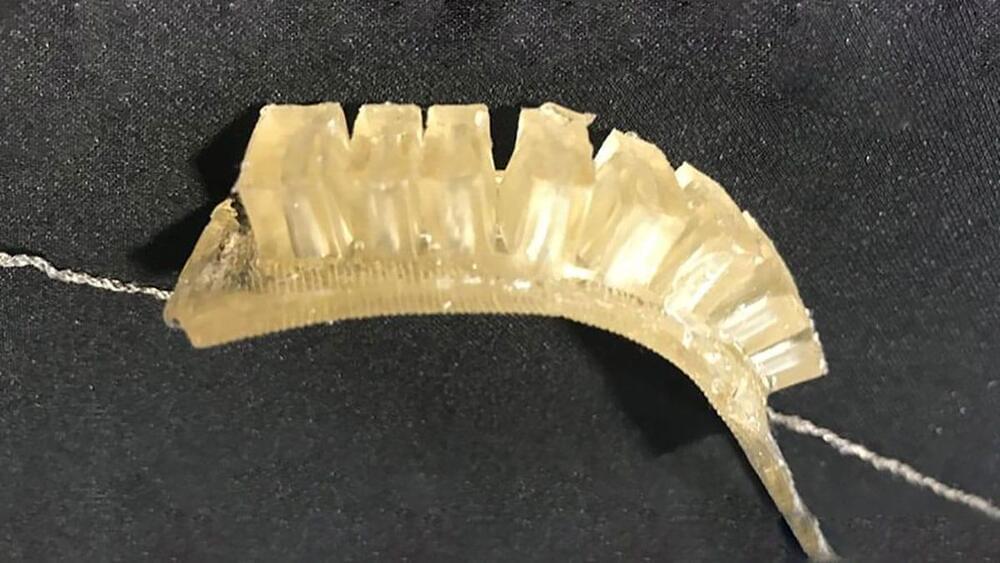Soft sensing technologies have the potential to revolutionize wearable devices, haptic interfaces, and robotic systems. However, most soft sensing technologies aren’t durable and consume high amounts of energy.
Now, researchers at the University of Cambridge have developed self-healing, biodegradable, 3D-printed materials that could be used in the development of realistic artificial hands and other soft robotics applications. The low-cost jelly-like materials can sense strain, temperature, and humidity. And unlike earlier self-healing robots, they can also partially repair themselves at room temperature.
“Incorporating soft sensors into robotics allows us to get a lot more information from them, like how strain on our muscles allows our brains to get information about the state of our bodies,” said David Hardman from Cambridge’s Department of Engineering the paper’s first author.










Comments are closed.